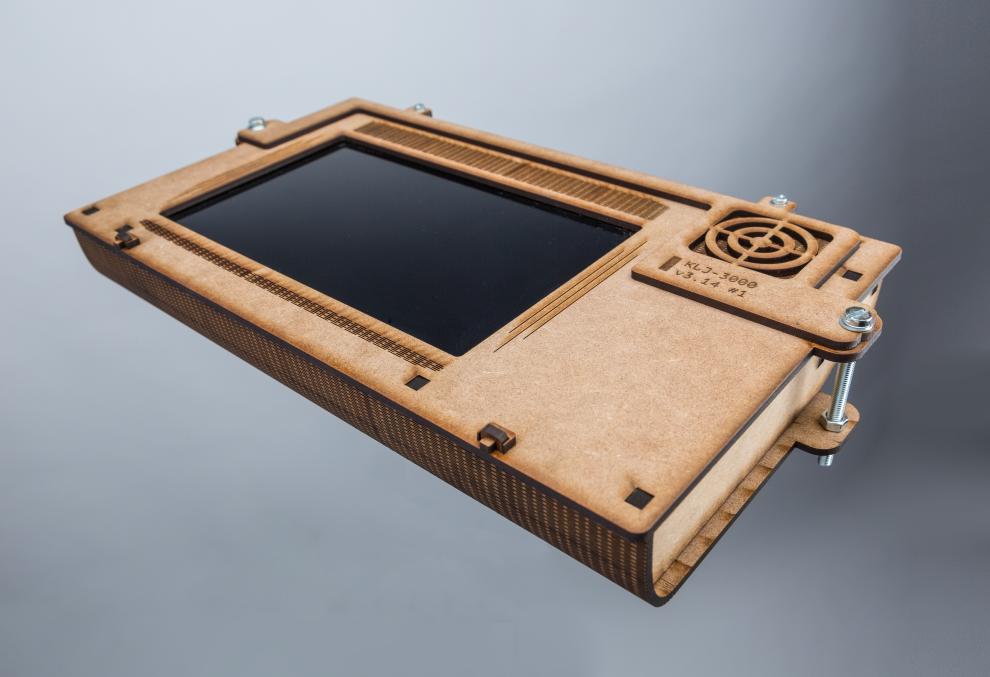Ghost hunt on board the Oscar Huber in Duisburg
Rhine-Waal University of Applied Sciences presents multimedia project during cultural festival
Students at Rhine-Waal University of Applied Sciences have successfully developed a new ghost detection device, the KLJ 3000, as part of a recent multimedia project led by Ido Iurgel, Professor of Media Computing at Rhine-Waal University of Applied Sciences, in collaboration with media artist Wolfram Lkaszus. Using the KLJ 3000 breakthrough, visitors to the 37th Duisburger Akzente cultural festival were able to conduct their own ghost hunt on board the Oscar Huber, a decommissioned push boat and current museum in the Duisburg harbour.
Kleve/Kamp-Lintfort, 1 March 2016: The KLJ 3000 was developed partly in lectures, partly with the help of student research assistants, and partly with the after-hours dedication of students. The interdisciplinary project group consisted of 20 members, including master’s students from the Digital Media and Information Engineering and Computer Science programmes, who developed and implemented new software and hardware to make ‘ghostly phenomena’ come alive visually and audibly for users. Visitors to the recent Duisburger Akzente cultural festival could observe these phenomena on board the Oscar Huber, a century old push boat that now sits in the Duisburg harbour as a museum ship.
Implementing the KLJ 3000 project required a significant amount of hands-on and intensive planning, programming and developmental work to achieve the fully functional, retro-futuristic design. The resulting four prototypes were debuted to the public at the recent cultural festival in Duisburg. The developers also converted their software into an Android app, which the brave and daring can download from the Android Play Store (software without guarantee – use and install at your own risk!) The team also maintained a project blog that gives insight into the development process.
“For us, the most important aspects of the project were the interdisciplinary collaboration between students and the opportunity to tackle new creative areas and challenges, which manifested throughout the project: from technical development, to conceptualisation of new creative concepts, to profiting from new practical experiences and insight. Students played an integral and autonomous role in the development process from start to finish,” noted Professor Ido Iurgel, who led the project in collaboration with media artist Wolfram Lakaszus.
The KLJ 3000 prototypes will be available for use at the Duisburger Akzente festival (address: Am Leinpfad, 47119 Duisburg-Ruhrort) until 13 March 2016 and between the hours of 3 and 7pm. There is no entry fee.

